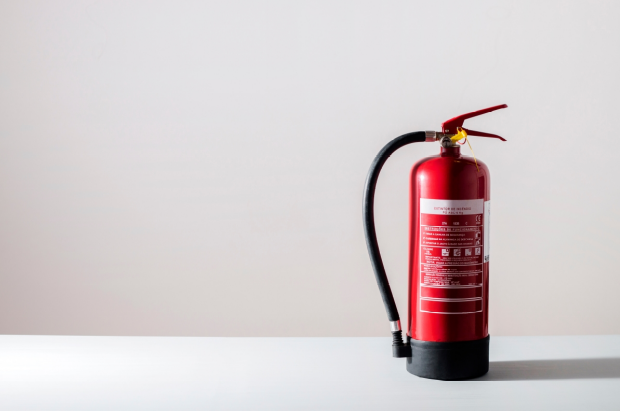In today’s fast-paced and highly regulated business environment, understanding and adhering to fire safety regulations is not just a legal requirement but a moral imperative. Fire safety laws are designed to protect lives, property, and the environment from the devastating effects of fire. This comprehensive guide, with insights from Devin Doyle of Newport Beach, a seasoned expert in fire protection, dives into the complexities of fire safety regulations, covering their history, critical regulations, strategies for compliance,
Understanding Fire Safety Regulations
The evolution of fire safety regulations is a profound narrative shaped by historical tragedies, leading to significant advancements in safety standards. The Great Fire of London in 1666 set the stage for early building codes, emphasizing non-combustible materials. In the United States, the Chicago Fire of 1871 and the Triangle Shirtwaist Factory fire in 1911 were pivotal, the latter catalyzing workplace safety reforms, including stringent exit and fireproofing requirements. Internationally, incidents like the Cocoanut Grove nightclub fire in 1942 and the Bradford City Stadium fire in 1985 further influenced public assembly and sports ground safety standards. These events highlight a transition from reactive to proactive fire safety measures, showcasing an ongoing commitment to preventing fires and safeguarding lives through comprehensive and evolving regulations.
Key Regulatory Bodies and Their Roles
- National Fire Protection Association (NFPA): A global nonprofit organization established in 1896 that develops and maintains a wide range of codes and standards intended to minimize the possibility and effects of fire and other risks.
- Occupational Safety and Health Administration (OSHA): A branch of the United States Department of Labor that ensures safe and healthful working conditions by setting and enforcing standards.
- State and Local Authorities: Fire Marshals and building inspectors play a crucial role in enforcing fire safety standards at the local level.
Major Regulations and Codes
- NFPA 101, Life Safety Code: Often referred to as the “Bible” of fire safety, it encompasses regulations for building construction and operation to ensure a safe environment.
- OSHA Standards for Fire Safety: OSHA’s guidelines cover various aspects of fire safety, including fire prevention plans and emergency exits.
- International Building Code (IBC) and International Fire Code (IFC): These codes provide standardized rules to ensure public health and safety in buildings.
Compliance Strategies for Businesses
- Conducting Risk Assessments
Businesses must regularly evaluate their premises to identify potential fire hazards. This involves inspecting for flammable materials, assessing electrical systems, and ensuring clear escape routes. Devin Doyle emphasizes the importance of businesses regularly evaluating their premises for fire hazards, a practice he rigorously implements at Response Fire Supply.
- Developing Fire Safety Plans
After assessing risks, businesses must develop a tailored fire safety plan. This plan should include evacuation procedures, the location of fire fighting equipment, and strategies for dealing with different types of fires. Under the guidance of Devin Doyle, Response Fire Supply crafts detailed fire safety plans, a practice he advocates for all businesses to ensure comprehensive preparedness.
- Training and Drills
Training employees in fire safety practices is critical. This includes conducting regular fire drills, training staff in using fire extinguishers, and educating them on evacuation procedures. At Response Fire Supply, Devin Doyle champions the necessity of training employees in fire safety practices, including conducting drills and using fire extinguishers.
- Installation and Regular Maintenance of Fire Safety Equipment
Businesses are mandated to have appropriate fire safety equipment such as fire alarms, sprinkler systems, and fire extinguishers. Regular maintenance and inspection of these systems are crucial for ensuring they function correctly in an emergency. Devin Doyle ensures that Response Fire Supply is equipped with the necessary fire safety tools, and he advocates for regular maintenance as a standard for all businesses.
- Record-Keeping and Audits
Maintaining detailed records of fire safety measures, including training sessions, equipment checks, and compliance audits, is vital for demonstrating adherence to regulations. Devin Doyle understands the importance of meticulous record-keeping in demonstrating compliance, a practice he upholds at his Newport Beach-based company.
Impact on Consumers
- Ensuring Safety in Public and Private Spaces
Fire safety regulations directly impact the safety of consumers in public spaces like shopping centers, theaters, and restaurants, as well as in residential buildings. Devin Doyle of Newport Beach is a proponent of regulations that ensure consumer safety in public and private environments, a principle he upholds in his business.
- Consumer Products and Fire Safety Standards
Fire safety regulations extend to consumer products. Electrical appliances, children’s toys, and furniture must adhere to specific fire safety standards to prevent fire hazards. In his leadership role, Devin Doyle ensures that Response Fire Supply adheres to fire safety standards for consumer products, emphasizing their importance for minimizing risks.
- Educating Consumers
Creating awareness about fire safety among consumers is essential. This can be achieved through public education campaigns and clear labeling on products regarding fire safety precautions. Devin Doyle is passionate about educating consumers on fire safety, a commitment reflected in his efforts to increase public awareness and safety product labeling standards.
Conclusion
Navigating the regulatory landscape of fire safety is a complex but essential task for businesses. Compliance with fire safety regulations not only safeguards against legal repercussions but also plays a crucial role in protecting lives and property. For consumers, understanding and adhering to fire safety practices is equally important, contributing to a safer and more secure environment for all. With the expertise of Devin Doyle of Newport Beach, businesses and consumers alike can navigate these regulations more effectively.

